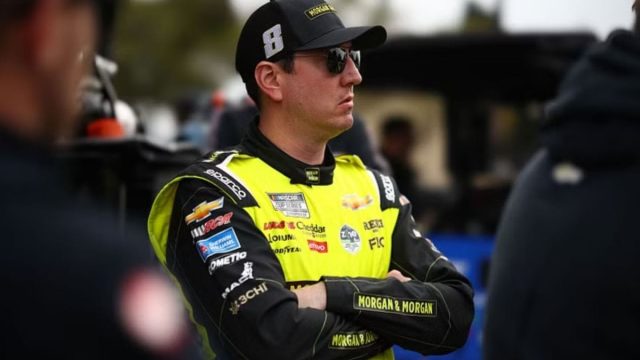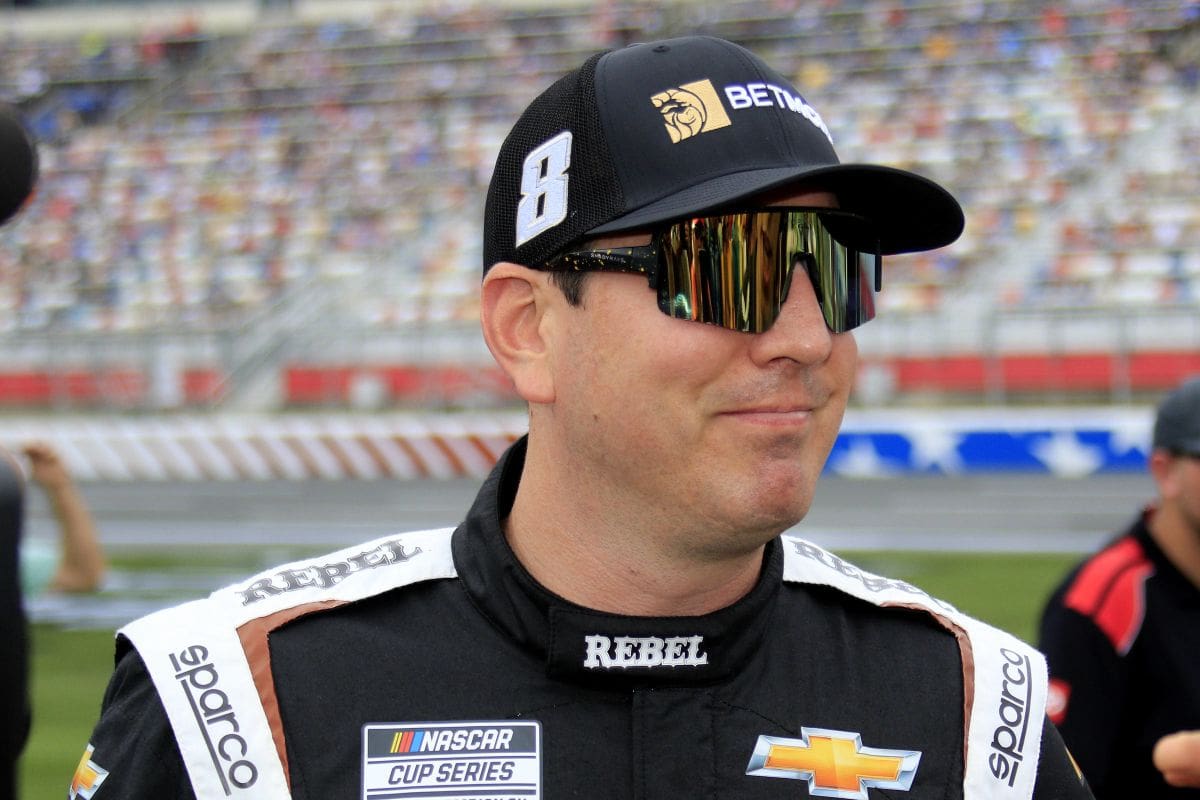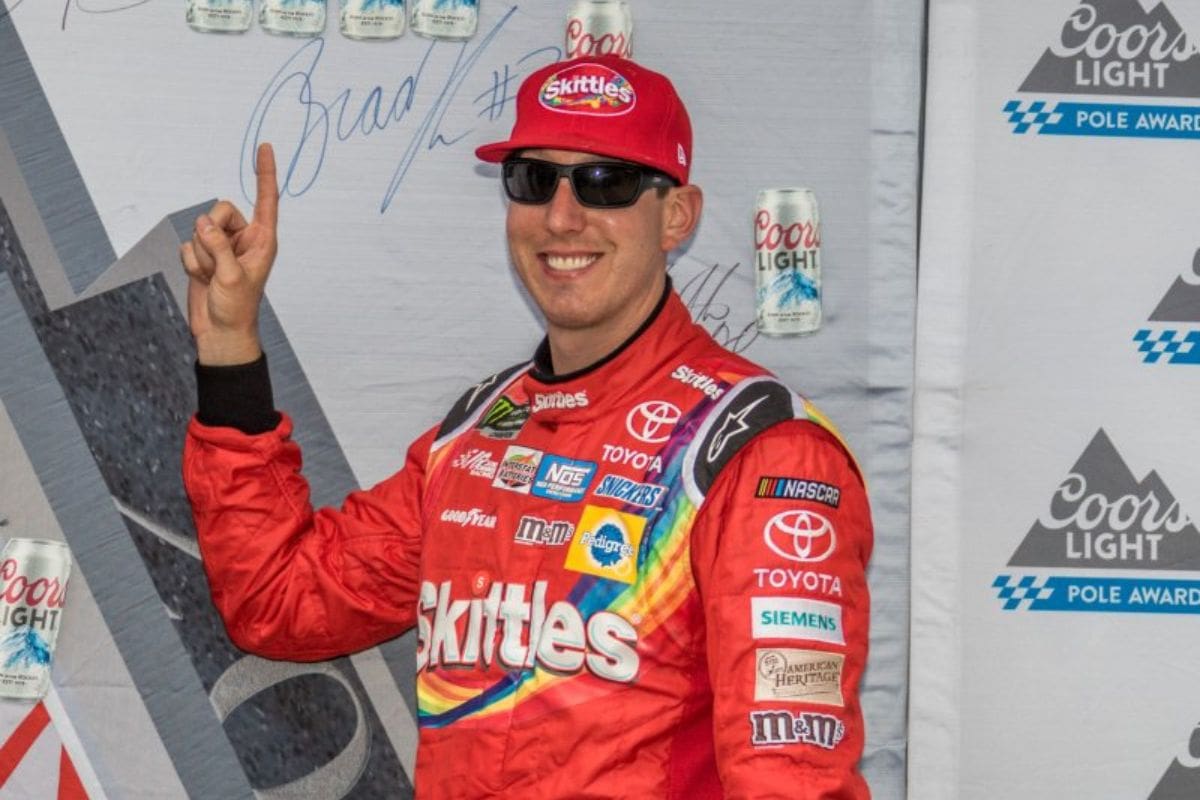Kyle Busch Admits Self-Elimination From Playoffs: Kyle Busch‘s admission of “self-elimination” from the NASCAR playoffs not only concludes a notable 12-year streak but also highlights the complexities of competitive racing and the personal stresses athletes face. With performance issues stemming from both on-track incidents mistake, Busch’s situation prompts a broader analysis of team dynamics and the evolving landscape of NASCAR. As he reflects on this crucial season, one cannot help but wonder how this turning point will influence his career path and the necessary adjustments his team must undertake moving forward.
Key Highlights
- Kyle Busch’s self-elimination from the NASCAR playoffs ends a notable 12-year streak of playoff appearances.
- Performance issues, including crashes and strategic failures, contributed to Busch’s inability to qualify for the playoffs.
- Busch’s acknowledgment of his shortcomings emphasizes the need for future strategic adjustments and improved team dynamics.
- His near-miss at the Daytona race exemplified the high-stakes nature of NASCAR and the psychological pressures faced by drivers.
- The unpredictable nature of NASCAR, marked by unexpected outcomes and challenges, played a role in Busch’s playoff elimination.
Overview of Playoff Standings and Kyle Busch’s Situation
As the NASCAR playoffs unfold, the competitive landscape reveals a striking narrative, particularly regarding Kyle Busch’s unexpected absence from the postseason for the initial time in over a decade. This absence marks a notable turning point in Busch’s career, as he has long been a mainstay in the playoff picture, showcasing both talent and tenacity.
The current playoff standings are led by Kyle Larson, who has emerged as a formidable contender, while Tyler Reddick has captured the title of regular season champion. Among the surprises this year is Harrison Burton, whose entrance has added a fresh dynamic to the competitive field.
However, the narrative of Busch’s exclusion looms large, as it brings into question the factors that contributed to his failure to secure a playoff spot. Despite a season characterized by consistency, Busch’s campaign was blemished by narrow misses, particularly in crucial races like the Coke Zero Sugar 400 and the Cook Out Southern 500, where finishing just one position shy of victory proved disastrous.
Such close calls highlight the unforgiving nature of NASCAR, where each race represents a critical opportunity that can determine postseason eligibility. Fans and analysts similarly are left pondering the implications of Busch’s absence, both for his career path and for the comprehensive competitive landscape of NASCAR.
As the playoffs progress, the story of Busch serves as a cautionary tale of how quickly fortunes can shift in motorsport’s elite echelons.
Playoff Rules and Harrison Burton’s Entry
The rules governing the NASCAR playoffs are designed to create an environment where every race carries considerable weight, emphasizing the importance of winning. This format allows drivers to secure playoff spots solely based on their race victories, irrespective of their overall standings in the regular season. This unique structure is exemplified by Harrison Burton’s entry into the playoffs, where his performance in a single race allowed him to qualify, ultimately displacing seasoned competitors like Kyle Busch.
The playoff format can be summarized as follows:
| Criteria | Implication | Impact on Drivers |
|---|---|---|
| Win a Race | Automatic playoff entry | Rewards aggressive racing |
| Regular Season Standing | Irrelevant for playoff qualification | Heightens unpredictability |
| Number of Playoff Spots | Limited, increasing competition | Forces drivers to perform consistently |
| Elimination Rounds | Drivers must survive each round | Adds stress and stakes |
Burton’s entry demonstrates how a single victory can considerably alter the championship landscape. This underlines the notion that every race is critical; a win can propel a less established driver into competition while simultaneously eliminating more experienced competitors. The dynamic nature of the playoffs not only creates thrilling narratives but also challenges drivers to perform at their best consistently. As the season progresses, the implications of these rules become increasingly pronounced, shaping the strategies teams employ and the risks drivers are willing to take on the track.
Kyle Busch’s Reflections on His Performance
Frustration permeated Kyle Busch’s reflections on his performance during the season, highlighting the glaring reality of his absence from the NASCAR playoffs. As the seasoned driver for Richard Childress Racing, Busch openly acknowledged the shortcomings that led to this unexpected outcome.
“Just didn’t execute well enough and have the pace that we needed through the summer. We crashed a lot, and so, you know, that just kind of self-eliminated us.”-(KYLE BUSH)
Emphasizing that a series of crashes greatly hindered his team’s competitive edge. This acknowledgment of self-elimination serves as a striking reminder of the razor-thin margins that define success in NASCAR.
Further probing into the team’s strategies, Busch revealed that experimentation was a double-edged sword. While he recognized their efforts to investigate new avenues, he admitted that many of these attempts did not yield fruitful results.
For the drivers that just missed the playoffs, they need to try to move on … Kyle Busch at least feels things are progressing as he finished second the last two weeks. pic.twitter.com/rPhna1KUnj
— Bob Pockrass (@bobpockrass) September 8, 2024
“I think we did enough experimenting throughout the year on things that didn’t work. So it seems like we’ve kind of gotten a little bit of a path towards what we think does work.”-(BUSCH)
Suggesting a learning curve that, while frustrating, ultimately provided clarity on what direction to pursue moving forward.
Busch’s introspection demonstrates the complex interplay between ambition and execution in a high-stakes environment. The lessons learned this season are poised to shape his approach in future races.
As he and his team refine their strategies, the hope remains that this year’s setbacks will foster a path toward greater consistency and performance. In a sport where every moment counts, Busch’s resolve to improve is a reflection of his competitive spirit and commitment to reclaim his place among NASCAR’s elite.
Kyle Busch’s Perspective on Daytona Races
Kyle Busch’s recent performances in the final races of the season reveal a driver resolute to reclaim his competitive edge, even amidst the challenges he faced. The intensity of these races highlighted Busch’s resilience and tactical mindset, particularly evident during the high-stakes environment of Daytona. As he navigated through the chaos, Busch found himself among the frontrunners, a position that reignited his hopes of advancing into the playoffs.
Reflecting on his experience at Daytona, Busch expressed a palpable sense of urgency and frustration. His ability to steer clear of the wrecks that plagued many competitors was a demonstration of his skill and situational awareness.
“I thought that when we missed all the wrecks at Daytona and I wasn’t involved in one of them and we were still clean, I was like, ‘Wow, if I don’t get this, man, then life’s really not on my side.’”-(busch)
He remarked, emphasizing the weight of expectation he felt. This statement encapsulates not only his desire for victory but also the broader implications of his performance on his career path.
Busch’s approach in these critical moments highlights his awareness of the stakes involved. Despite missing out on playoff rivalry, his focus remained on securing wins, emphasizing a commitment to excellence that has characterized his career.
The psychological battle within the cockpit is as crucial as the physical tactics on the track, and Busch’s insights reveal a driver who, despite setbacks, remains undeterred. His resolve to fight for every position serves as a reminder of the tenacity required in the fiercely competitive world of NASCAR.
The Daytona Race and Final Reflections
Amidst the electrifying atmosphere of the Daytona race, Busch’s tactical skill was on full display as he led during the final lap, only to encounter a last-minute challenge from Harrison Burton. The intensity reached its peak when Parker Retzlaff’s push propelled Burton ahead of Busch, leading to a dramatic finish that ultimately eluded the seasoned driver. Busch’s disappointment was palpable as he reflected on the race, stating, “So ultimately, it didn’t happen, but, you know, that is what it is.”
Despite this setback at Daytona, Busch expressed satisfaction with his performance at the Cook Out Southern 500, where he secured a P2 finish. However, the Daytona race loomed larger in his mind; he had anticipated it as his best chance for playoff qualification. His frank admission highlighted an essential lesson in racing: execution and pace are paramount.
| Emotion | Quote | Insight |
|---|---|---|
| Disappointment | “So ultimately, it didn’t happen…” | Acknowledgment of fleeting opportunities. |
| Satisfaction | “I actually pleasantly surprised…” | Recognition of team performance amidst adversity. |
| Anticipation | “I really did think our shot…” | The weight of expectation in competitive racing. |
| Reflection | “We just didn’t execute well enough…” | Learning from missed opportunities. |
In the end, Busch’s reflections serve as a poignant reminder of the unpredictable nature of NASCAR, where moments of victory can swiftly transform into lessons in humility.
News in Brief: Kyle Busch Admits Self-Elimination From Playoffs
The end of Kyle Busch’s 12-year playoff streak emphasizes the complexities of competitive racing and the impact of performance inconsistencies. Acknowledgment of self-elimination highlights the necessity for self analyses and planned improve within Busch’s team. The challenges faced during this season serve as a crucial learning opportunity, improved a reevaluation of approaches to future races. As the NASCAR landscape evolves, the implications of this crucial moment may influence both Busch’s career path and the dynamics of the sport.
ALSO READ: Kyle Busch’s Wife Samantha Stuns in Indian-Inspired Fashion Sparks Fashion Frenzy



